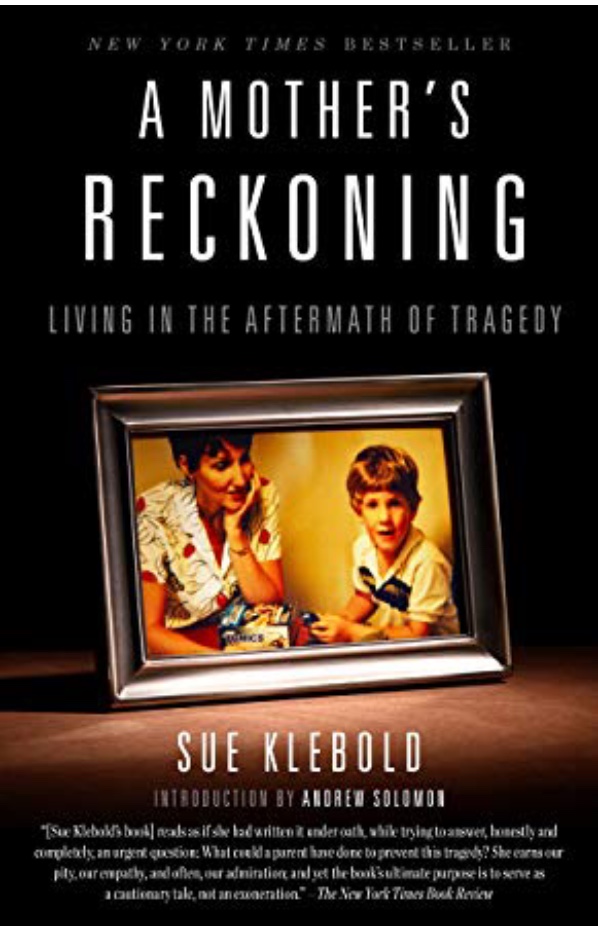
A few weeks ago, my friend posted that she had just read, A Mother’s Reckoning: Living In The Aftermath of Tragedy, by Sue Klebold and asked for someone else to read it so she could discuss it with someone because she felt it was very emotional and deep and she wanted to be able to process it with someone. If the author’s name sounds familiar, it is because she is the mother of Dylan Klebold, one of the two teens who was involved in the Columbine shooting on April 20, 1999. Since understanding and trying to prevent these shootings is one of my passions, I was up for the challenge once I learned what the book was about. So, I thought I would share a little about the book and my thoughts on the brave and raw book Sue wrote back in 2014.
When these mass shootings happen, the first reaction to from everyone is, “How did this happen?”, “Where was the family?”, “Weren’t there any red flags or warning signs?”. What many people don’t realize is that these warning signs and red flags aren’t always as clear and obvious as we would hope they would be. Sue goes through a real period of awareness that she discusses in the book. It was raw and honest. I gained tremendous respect for her. She does a great job at expressing her thoughts and feelings and eventually admitting a few places that maybe they could have done more had they understood a few things better. As a mom, I could feel her pain come through the pages. Not just the pain she had for losing her own son, but the pain she felt for each person who lost their life that day and for the community that was forever changed by the actions of her son. Not once does she make excuses for Dylan’s actions that day. However, instead of simply falling into the depths of the horror her life had become, she decided to put her energy into searching for what was missed, what went wrong and how they could have handled things differently. Her quest for this information was in order to help other moms and dads understand what behaviors to look for and for others to understand what some of the more subtle signs of psychological distress so that we can work together to not let these tragedies continue.
One of the best parts of this book, in my opinion, is how she explains about the brain and the symptoms/behaviors parents should look for in their teens. Sue speaks with numerous experts and she shares much of what she learned from them. She isn’t a mother who retreated from the world. I don’t think anyone would blame her if she had. Instead, Sue Klebold decided she needed to understand how her son who appeared to be a happy, normal teenager with only one major incident of bad behavior. Sue does not make excuses for her son’s horrific actions on that day. Instead, she simply sought to understand how it could have happened despite being involved and loving parents. One of the most interesting aspects was how after speaking to a neurologist, she began calling Mental Illness, Brain Illness and Mental Health, Brain Health. Some experts are trying to make this shift in wording in order to help end the stigma. By referring to the brain, it gives people a concrete organ that they can relate to for the injury, illness or health. Mental is a more abstract word and allows society to struggle as seeing the illness as not the true illness to the organ. I felt that this was very powerful.
Sue Klebold goes into detail about how these shootings not only changed their family, but how it affected the entire community. Her family faced many threats and alienation yet still had friends who came by their side
If you are interested in a different view of how these mass shootings effect all involved or a better understanding on brain health, Sue Klebold’s, A Mother’s Reckoning, is a great book to read. It is definitely not an easy beach read but more of an educational read filled with deep emotions. Only read it if you feel you can handle the emotions that come with it. I truly believe that the only way we will be able to end stigma and get our society to a more healing place, is continuing to educate ourselves and hearing all points of view on these tragedies.

